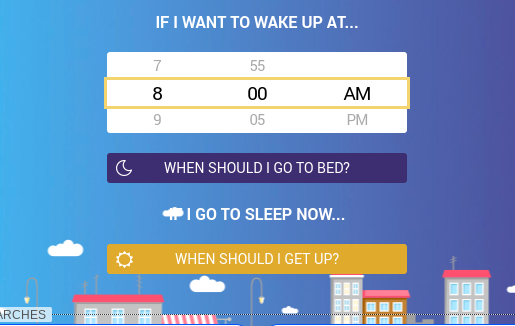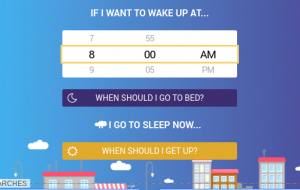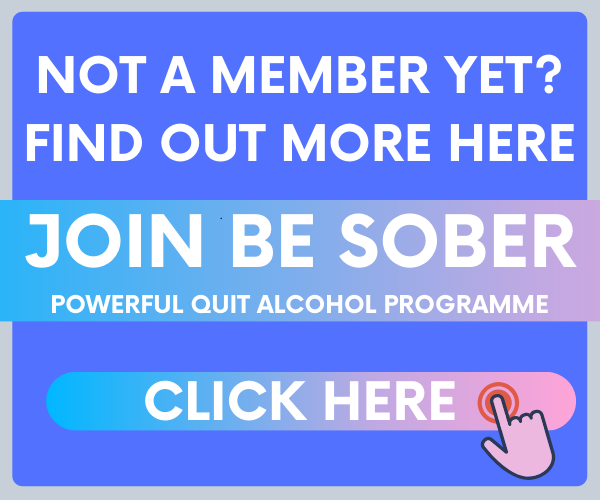Over the last few months I haven’t needed to get up quite so early in the mornings as I used to. I no longer have an alarm clock and I can roll out of bed at pretty much whatever time I like. To me this appeared to be a perfect scenario, I hate getting up early and prefer to wake naturally after a good night of refreshing sleep. Although I usually get woken by the postman or someone making a noise outside the house.
However, I have found that some mornings I have been waking up feeling almost hungover with a fuzzy head and not really with it. When I feel like this it can take several hours for me to come to life and start functioning effectivley. Recently it has been happening more often and I find myself sinking several cups of coffee in an effort to wake up fully.
I am still getting off to sleep nicely and I don’t wake up during the night. But when I was previously being woken up by my alarm clock this didn’t happen, I always felt alert in the mornings, wide awake and was fully functioning pretty quickly.
I started wondering what was going on, after all when we quit drinking we are promised that our sleep will be amazing and we will feel restored and on top of the world when we rise in the mornings. So why had this stopped happening for me when the only thing I had changed was switching off the alarm clock?
My teenage son is a bit of a scientist and that was where I found the answer. He had been experimenting with his own sleeping patterns and we decided to carry out a study over the space of the week using the information he had gathered.
Before I share the results, it is important to understand the different phases we experience when we go to sleep.
Phase one – With a few minutes (or even seconds) of falling a sleep your brain starts to produce alpha and theta waves which slow down your eye movements. This is a bit like your mind introducing you to sleep and can last for up to seven minutes. It is a light sleep, so you are still alert and can easily awaken, it feels a bit like a snooze.
Phase two – The second phase is also quite a light sleep during which the brain produces frequency waves called spindles. Now your brain waves are starting to slowing down, your heart rate and body temparture will also drop as the sleep starts to get a little deeper.
Phase three – This is where we start to enter deep sleep. The delta waves become slower and you won’t experience and muscle or eye movement. It is much harder for you to wake up at this stage as you are far less aware of what is going outside of your body.
Phase four – You now enter a much deeper sleep, where it is very difficult to wake up. This is the stage where your body is rebooting (a bit like a computer), muscles and tissues repair and you experience growth that boosts your immune system and fills you with energy for the following day.
During the night we move between cycles of REM sleep which is the most vital to our health and lighter sleep. REM sleep is vital because it:
- Allows your brain to sort through the information it has gathered in the previous day and store it away
- Enhances your memory and learning
- Restores and repairs your body and mind
- Enhances brain development, especially in infants and young children
When we drink alcohol REM sleep is badly impacted and without REM sleep we can experience issues with memory as well as migraines and even weight gain.
REM sleep starts around 90 minutes after falling asleep and we go through the whole cycle from phase 1 to 4 over and over during the night, each cycle lasts for around 90-100 minutes We have around 5-6 cycles per night.
So back to the experiment…
When I discovered this information I realised that because I was waking up at different times without the alarm clock I was often waking during the deeper phases of sleep, the worst possible time to wake up as it leaves you feeling groggy and almost hungover.
So the next step was to ensure I awoke during a lighter phase of sleep, the problem was how to know what time this would be. Thankfully my son had found a brilliant sleep calculator that works out when to go to sleep based on the time you want to wake up so as to ensure you don’t wake up during deep sleep.
We experimented with this over a week and proved that by setting an alarm to wake during a lighter phase of sleep by using this calculator to work out when to get up I was no longer feeling groggy. Instead I was wide awake quickly and feeling refreshed and alert. This was because I was now waking up during the lighter phases of sleep.
The reason I am sharing this information is because many people quit drinking and wake up feeling like they are hungover, even though they haven’t had alcohol. This is very likely to be the reason, previously I was putting the groggy feeling down to having too much wine the night before, while I am certain the wine played a big part I am now sure that waking up in the middle of a deep sleep cycle was also a contributing factor.
So if you are finding that you are waking up in the mornings and not feeling refreshed try using this method and waking during a lighter sleep phase. I have experienced it for myself and can assure you that you will notice a real difference.





